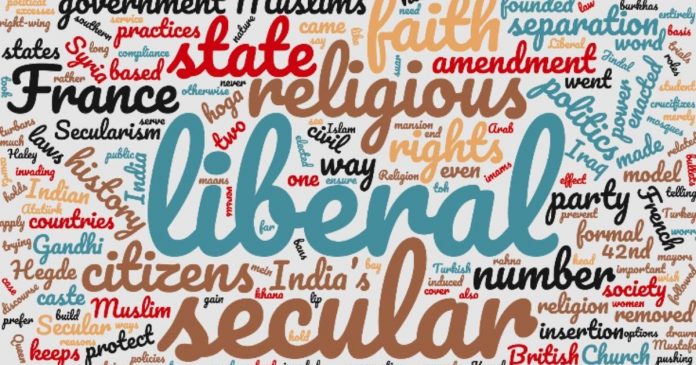This article is written by Ronika Tater, from the University of Petroleum and Energy Studies, School of Law. In this article, she discusses the underlying principles of the Constitution vis a vis how much have the provisions of the Constitution been implemented in the laws of the land. It also states whether the eunuchs are beneficiaries of the Constitution or has the Constitution failed to achieve its purpose.
Table of Contents
Introduction
Article 14 of the Constitution of India provides that the State shall not deny any person equality before the law and equal protection of the laws within the territory of India. Article 15 of the Constitution of India states that the State shall not discriminate against any citizen on the basis only of religion, race, case, sex, place of birth. It also states that there should be no restriction with regard to access to public places. Various social minorities have an accepted place in Indian society but have faced discrimination based on sex. One of the communities is the transgender community, which has a recorded existent since ancient times.
What do we understand by the term eunuch
From ancient times, the human race has approved the existence of only two genders, male and female. But there also exists a third gender which is in minority. They are known as Eunuchs. A eunuch is known as a castrated man or people born with genital abnormalities. Section 1(A) of the Telangana Eunuchs Act, 1919 which was enacted in the Nizam’s dominions states an eunuch shall include all persons of the male sex who admit to being impotent or who appear to be impotent on medical inspection. Over time, there are a wide variety of terms for people who do not identify themselves under the traditional and more known binary divisions of gender. One umbrella term is queer which consists of transgender, bi, lesbian, gay, and intersex. In the case of transsexuals, nature is more psychological than biological, unlike Eunuchs.
The legal position of eunuchs
In the past, most parts of the world had a well-established eunuch culture, especially in West Asia where they are known as hijras, and they held sanctioned positions in royal courts. In India, hijras have a trace of their origins in the myths of Ramayana and the Mahabharata. In the myth of Ramayana where Rama, who was banished from the kingdom for 14 years and had to leave for the forest, asks all his followers of men and women to return to the city. Among his followers, the hijras do not feel bound by this direction and decided to stay with him. Impressed with their devotion, Rama empowered them to confer the blessing on people on auspicious occasions such as childbirth, marriages and inaugural functions. In the myths, the hijras were given out most respect for their presence. Over time, humans have civilized and the position of hijras in India occupies no safe haven, not even in their families where they are protected from the prejudice of the world.
In India, over a hundred years ago, transgenders had terrible lives especially in the reign of the Britishers, where they were treated as criminals under the establishment of the controversial Criminal Tribes Act, 1871. Under this Act, they were forced to register their names and residential addresses in local police stations. The register maintained the names of all eunuchs who were suspected of kidnapping, castrating children or committing any offence under Section 377 in the Indian Penal Code (IPC). It also stated punishment with imprisonment of up to two years or fine for all those who appeared to be dressed as women in a public place or exhibited any activities. This harsh treatment leads to little opportunity to find employment. The Telangana Eunuchs Act, 1919 was a draconian legislation against transgender and queer persons which was enacted for the registration and control of eunuchs. This law empowered the state police to maintain a register of names for eunuchs and accordingly make arrests in cases where persons are found to be singing and dancing or dressing up as women in public places.
Case law
Section 377 of the IPC states unnatural carnal intercourse with any man, woman, or animal. Queen-Empress v. Khairati, (1884) was the first case of the use of Section 377. In this case, the police took a suo moto action without any complaint against Khairati, who was arrested for cross-dressing as a woman and singing with them in her village. The accused was also found to be a habitual sodomite upon medical examination. The Court appreciated the police authorities for keeping a check on these disgusting practices. The defendant, Khairati was not convicted in this case but it is essential to note that the police interaction reflects torture and discrimination against the queer community even today. The excessive police force in order to arbitrarily arrest and torture the queer community is unjust and against the principles of the Constitution.
Constitutional framework
The Constitution of India has not left any stone unturned while considering, creating and conferring the rights on the vulnerable sections of the society such as women, children, elders and disabled persons. However, the rights of eunuchs remain unrecognized and unidentified in the Constitution. Even though international law recognizes the human rights of individuals as indispensable, it fails to recognize the rights of the eunuchs. Further, the judicial precedent has recognized the rights of the transgender in several cases. In the historic judgement of National Legal Service Authority v. Union of India, (2014) (‘NALSA Case’) the Supreme Court declared transgender people as the ‘third gender’ and stated that fundamental rights granted under the Constitution of India are equally applicable to them.
The constitutional validity of Section 377
Section 377 of the IPC was introduced in 1861 during the British reign of India. Anything which is against the order of nature was made illegal according to this Section. However, the Constitution provides various fundamental rights to every citizen of this country and this Section was against the basic principles of Constitutional ideas.
Naz Foundation v. Govt. of National Capital Territory of Delhi, 2010
In Naz Foundation v. Govt. of National Capital Territory of Delhi,(2010) the constitutional validity of Section 377 was challenged on the ground that it is violative of the fundamental rights guaranteed under Article 14, Article 15, Article 19 and Article 21 of the Constitution of India. It also stated that it goes against the spirit of the right to personal liberty and equality before the law and no discrimination can be made on the basis of mere sexual orientation. In the instant case, the Delhi High Court struck down Section 377 to decriminalize a class of sexual relations between consenting adults and intrusion of the state is only applicable if the State was able to establish a compelling interest stated under Article 21 of the Constitution of India. It is stated an essential point that the Indian Constitutional law does not discriminate or permit any misconceptions of who the LGBTQ are. It should be considered that any discrimination is the antithesis of equality and recognition of equality will develop the dignity of every individual in the society. However, the defendant resisted the judgment by stating that no right is an absolute and reasonable restriction on the basis of decency, public morality, public health and social disgust of the act. Thus, the matter was urged before the Supreme Court to restore Section 377.
Suresh Kumar Koushal v. NAZ Foundation, 2014
In the case of Suresh Kumar Koushal & Anr. v. NAZ Foundation and Ors, (2014) in which a two-judge Supreme Court bench overruled the Delhi High Court case of Naz Foundation v. Govt. of National Capital Territory of Delhi and restored Section 377 of the IPC, the Apex Court stated that only a minuscule fraction of the country’s population constitute LGBTQ and only a negligible number of persons have been prosecuted under Section 377. The mere possibility of abuse, violence blackmail or torture on sexual minorities especially transgender does not constitute or provide a ground to make it unconstitutional. It stressed that the prevailing conditions should be according to the test of reasonableness and not mere Western experience. Declaring the law unconstitutional is one of the last resorts taken by Courts. Despite this, the Court validated the Section and proceeded to restore it. It was further stressed by the mental health professionals that the existence of this Section causes deprivation of their mental health as they feel that they are criminals and that this status is an essential part of their psychological distress.
Further, in Naz Foundation v. Suresh Kumar Koushal, (2016) the Supreme Court after reviewing the petition and various connected papers to declare Section 377 to be unconstitutional declined not to interfere with its earlier decision held in Suresh Kumar Koushal & Anr. v. NAZ Foundation and Ors, (2014). Subsequently, in Naz Foundation v. Suresh Kumar Koushal, (2016), a three-Judge Bench of the Supreme Court held that all the 8 curative petitions submitted should be placed before a five-judge Constitution Bench. It stated that all these issues raised before the Court are of considerable importance and public interest and on the doctrines of the Constitution.
Navtej Singh Johar v. Union of India, (2018)
In K.S Puttaswamy (Retd.) and Anr. v. Union of India & Ors.,(2017) the Supreme Court held that the Right to Privacy is a fundamental right protected under Article 21 and Part III of the Constitution of India. The judgment also stated that Section 377 directly affects the evolution of the constitutional jurisprudence on the right to privacy. Sexual orientation is an essential attribute of privacy. Discrimination against an individual based on sexual orientation is against the dignity and self-worth of the individual. Equality demands that the sexual orientation of each individual in society should be protected on the same level. Hence, their rights are not “so-called” but are real rights inherent in the doctrines of the Constitution.
Further, in the historic landmark judgment of Navtej Singh Johar v. Union of India, (2018) the Supreme Court unanimously held Section 377 in the IPC to be unconstitutional which criminalised consensual sexual conduct between adults of the same sex. It declares the right to sexuality, the right to sexual autonomy and the right to choose a sexual partner a right under Article 21. It contended that individuals belonging to the LGBT community due to the existence of Section 377 had suffered discrimination and lived under fear of prosecution and persecution and social stigma because of their sexual orientation. It compels the LGBT community to stay in a closet without disclosing their sexual orientation and openly operate as a tool in the hands of the majority to exploit and harass them. They cannot be made a victim of the majority perception. Section 377 cannot be justified on the ground of reasonable restriction under Article 19(2) of the Constitution of India on the grounds of public or social morality. Members of the LGBT community are entitled as par to other citizens to the full range of constitutional rights including liberties protected by the Constitution.
Present scenario
On November 26, 2019, the Parliament passed the Transgender Persons (Protection of Rights) Bill, 2019 (hereinafter referred to as the ‘Bill’) for the welfare of the transgender community. It prohibits discrimination against them in employment, education, healthcare, housing and other services. It defines a trans person as someone whose gender does not match the one assigned at birth. However, the trans community rejects the Bill stating that several clauses are violative of their fundamental rights.
- The name ‘transgender’ is restrictive in nature and it shows a lack of comprehension of people who do not conform to the gender binary, male or female.
- The Bill allows self-perception of gender identity and that each perosn would have to be recognised as ‘transgender’ by issuing a certificate of identity by a district magistrate.
- The Bill enforces a minor’s right of residence by compelling them to cohabit with their natal family. However, it has been noticed that the families of trans persons are often the reason for gruesome violence against the trans community thereby leading to separation.
- The Bill criminalises begging but it does not offer any reservation for employment and education.
- The Bill majorly focuses on transwomen and hijras thereby putting little emphasis on the intersex, queer and transmen.
The community is concerned about the post-implementation effects of this Act. It relies on the National Council for Transgender Persons for effective implementation of the law and provides a genuine representation of the community that the present Act fails to provide. Despite various protests from activists and the queer community, the Bill on August 5, 2019, has been passed. As per protesters, the Act treats trans persons as inferior citizens thereby going against the judgment of the NALSA case which recognises the right to self-determination.
Further, it is noted that the judicial precedents recognise the rights of queer. But still, they are not at par with the rights provided to the heterosexual person. The denial of civil rights as an only heterosexual person is recognized under religious and customary law thereby providing a major setback for the queer. Thus, it is important to educate people about their rights. The government should wipe away its conservative nature and take effective steps to eliminate the stigma, discrimination, torture, and abuse surrounding the queer.
Conclusion
The Eunuchs Act suppresses the right to privacy, dignity, and freedom of transgender persons. Hence, it is necessary to take immediate steps to safeguard the fundamental rights of transgender persons in Telangana. As said by Justice S.K. Kaul that “the old order changeth yielding place to new”. Despite the constitutional recognition of the third gender and the 2019 Bill in place, the trans community in India is still suffering. There is a need to amend various laws of the land to include the constitutional rights of the LGBTQ and provide them equal status in the society in various spheres especially in adoption, marriage, succession, etc.
References
- https://www.thehindu.com/opinion/op-ed/its-time-to-scrap-the-eunuchs-act/article19763976.ece.
- https://www.legalserviceindia.com/article/l285-legal-position-of-Eunuchs.html.
- https://thewire.in/lgbtqia/discard-regressive-laws-that-legitimise-violence-against-transgender-people.
- https://blog.ipleaders.in/navtej-singh-johar-v-uoi-judgment-which-decriminalized-homosexuality/.
- https://www.npr.org/sections/goatsandsoda/2019/12/04/784398783/india-just-passed-a-trans-rights-bill-why-are-trans-activists-protesting-it
Students of Lawsikho courses regularly produce writing assignments and work on practical exercises as a part of their coursework and develop themselves in real-life practical skills.
LawSikho has created a telegram group for exchanging legal knowledge, referrals, and various opportunities. You can click on this link and join:
https://t.me/joinchat/L9vr7LmS9pJjYTQ9
Follow us on Instagram and subscribe to our YouTube channel for more amazing legal content.
 Serato DJ Crack 2025Serato DJ PRO Crack
Serato DJ Crack 2025Serato DJ PRO Crack











 Allow notifications
Allow notifications


